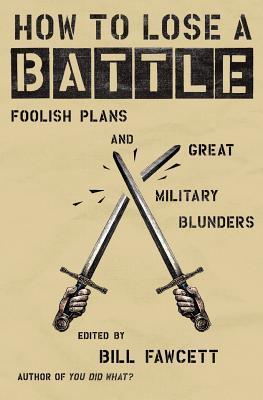What do you think?
Rate this book


A remarkable compendium of the worst military decisions and the men who made them.
The annals of history are littered with horribly bad military leaders. These combat incompetents found amazing ways to ensure their army's defeat. Whether it was a lack of proper planning, miscalculation, ego, bad luck, or just plain stupidity, certain wartime stratagems should never have left the drawing board. Written with wit, intelligence, and eminent readability, How to Lose a Battle pays dubious homage to these momentous and bloody blunders, including:
Cannae, 216 B.C.; the bumbling Romans lose 80,000 troops to Hannibal's forces. The Second Crusade; an entire Christian army is slaughtered when it stops for a drink of water. The Battle of Britain; Hitler's dreaded Luftwaffe blows it big-time. Pearl Harbor; more than one warning of the impending attack is there, but nobody listens.How to Lose a Battle includes more than thirty-five chapters worth of astonishing (and avoidable) disasters, both infamous and obscure; a treasure trove of trivia, history, and jaw-dropping facts about the most costly military missteps ever taken.
336 pages, Paperback
First published June 22, 2006